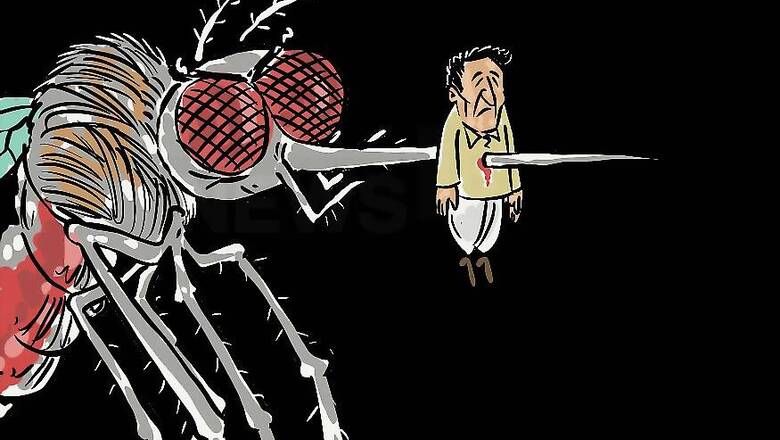
views
Bhopal: Weeks after dengue started taking epidemic proportions in Madhya Pradesh, especially in Bhopal, and claimed at least four lives with over 1,200 patients testing positive for the disease, the health machinery has finally decided to take corrective steps to battle the menace.
On Wednesday, Health Minister Tulsiram Silawat held a meeting with the collector and municipal officials in Bhopal and issued an advisory for controlling the vector-borne disease. The Bhopal Municipal Corporation (BMC), which had done very little over the issue till now, also swung into action following Silawat’s directive.
BMC Commissioner B Vijay Datta said the corporation would carry out a joint drive in co-ordination with the health department and conduct larva surveys in the city that would be divided into 13 zones for the purpose.
Silawat said the campaign against dengue would be launched on a war footing. The administration has identified 14 worse-affected areas and he would personally visit some of these places to assess the quality of preventive measures being adopted.
During the last six months, staff of the health department had inspected over 3.74 lakh households in the state capital and dengue larva was found in 26,000 of these houses.
An official of the department, who did not wish to be named, said very few of these households have been penalised till now for the shortcoming due to lack of coordination.
Over the last four-five days, drones are being used to spray pesticide on local ponds and empty plots to eliminate the larvae. Empty houses and vacant plots would also be surveyed and if filth or larva is detected, notices would be served to property owners and penalty would be recovered, said the municipal commissioner.
A sub-inspector Economic Offence Wing (EoW), Seema Patel, had recently died after being infected by dengue.
The maximum number of dengue deaths had happened in 2014 when five lives were lost even as 706 patients had tested positive. In 2017, as many as 1,094 individuals had tested positive for the disease.
The inefficient handling of the situation has also led to spread of malaria and chikungunya cases, though the situation is not as severe yet.




















Comments
0 comment